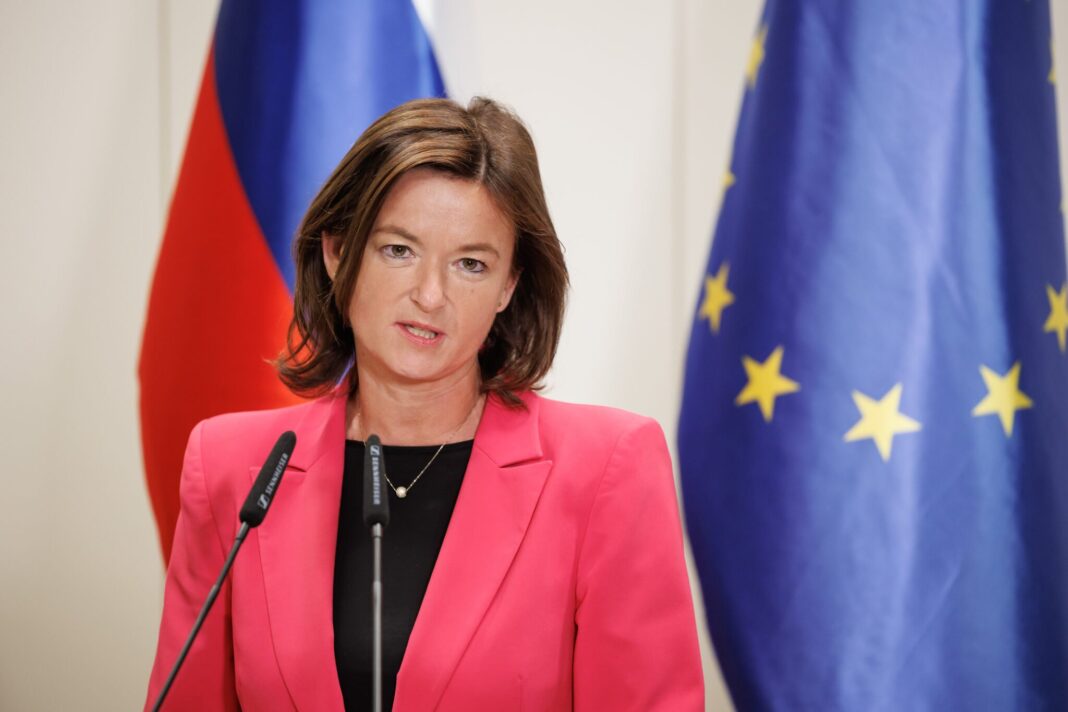By: Andrej Žitnik / Nova24tv.si
The Social Democrats boasted in front of the entire Slovenian public that they had made many positive changes “in the SD team” – they have supposedly provided 1.2 billion euros to the economy and provide access to 3.2 billion euros from the cohesion policy. But European money was not provided by them, but mainly by the government of Janez Janša, which was above average in this area.
In a party based on its legacy of the former system, they rely on their voters not to read the footnotes and fine print, and often save themselves in doing so. However, it is more than clear (due to the date itself) that the negotiations on the cohesion policy 2021-2027 took place before this government was formed, which was kindly pointed out by the former Prime Minister and opposition champion Janez Janša.
Audit report: everything was prepared by Janša’s government
The audit report of the Court of Audit for 2021 under the tab: “Successful absorption of funds of the European cohesion policy in the programme period 2014-2020”, where the assessment of the funds absorbed in the past period, shows that the absorption was only partially successful. The Court of Audits also concluded that the operational programme adopted by the government on December 11th, 2014, and approved by the European Commission on December 16th, 2014, was not even prepared on the basis of the Slovenian Development Strategy, which was only adopted on December 7th, 2017, not even on the basis of the programme of national development priorities and investments, since the government did not guarantee that these strategic documents would be adopted in time.
Of course, we are talking about the period of the reign of Miro Cerar, while the short-lived reign of Marjan Šarec is not even worth mentioning here. Later, on January 22nd, 2021, (during Janša’s government), the governing body for the 2021-2027 programming period prepared a draft Partnership Agreement between Slovenia and the European Commission for the period 2021-2027, considering the current Development Strategy of Slovenia, valid until 2030.
Let us remind you that when Janša’s government took office in March 2020, it witnessed an extremely poor absorption of European funds. The former government thus accelerated activities and eliminated the stagnation from the time of Šarec’s government and doubled the investment of European funds in two years. This was also confirmed by former minister Zvonko Černač, responsible for cohesion, when he listed the most important achievements in the field of cohesion policy. With the additional funds that Prime Minister Janez Janša negotiated in July 2020, the funds for the Western Cohesion Region have increased almost twice, or by 350 million euros. The total volume of funds that will be available to Slovenia from various funds exceeded 10 billion euros, which is a record achievement.
It is not the first time that SD has boasted with foreign feathers
Let us remind you that this is not the first time that SD presents the work of the previous government as its own. Minister Aleksander Jevšek made an almost identical statement to the public: “This government has done in three months what the previous one did not do in two years. The partnership agreement gives Slovenia access to 3.26 billion euros of European money. Thus, in the next financial perspective, together with integral funds, we will be able to draw a good 4.5 billion euros of European money.”
This means that for the last four months, the public has been mixing up the same news about the same funds from the perspective of 2021-2027, which was provided by Janša’s government. The same perspectives that were spat on and sabotaged in the parliament by voting against, and their president, together with other left-wing MEPs, actively tried to keep the country without resources, which is unique in the European Parliament.
We can legitimately worry about what awaits the country, once they will have to raise funds themselves and will no longer be able to rest on the comfortable cushion of free European money that Janša has prepared for them. Given that they have been bragging about the achievements of the previous government for four months, we can wonder if we are in for a similar ineffective absorption of European funds as in 2014-2020. Let us remind you that Miro Cerar’s government was at the bottom of the success rate among the EU members for drawing money. We were potentially left without multi-billion funds only because the Ministry of Cohesion did not function according to expectations.

